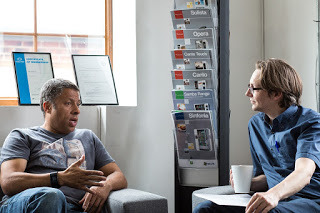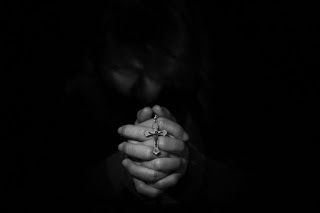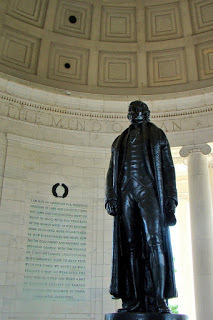Will Hathaway's Blog, page 2
October 9, 2018
The Art of Protest
 It’s hard to make it through a day of the news or social media cycle anymore without seeing some sort of protest. Protest is an interesting tool, really. When used appropriately, it can change the world. Yet when used incorrectly, it can do the exact opposite of its intended purpose and rather than push society toward its desired direction, can actually create further resistance to its own cause.
It’s hard to make it through a day of the news or social media cycle anymore without seeing some sort of protest. Protest is an interesting tool, really. When used appropriately, it can change the world. Yet when used incorrectly, it can do the exact opposite of its intended purpose and rather than push society toward its desired direction, can actually create further resistance to its own cause. I think the key to protest comes with the intention behind it. Often times the idea behind protest is to enact change. But sadly, especially in a selfie-driven, self centered society, I fear protest has become much more about seeking attention rather than creating change. One downside to being a protester who is motivated by seeking attention is if their cause actually attains success. For once success occurs, there is no longer a need for protest. And if their is no longer a need for protest then there is no longer the avenue of protest with which to gain attention.
If we are honest with ourselves, we have to acknowledge that protest might be a great way to draw attention to an issue, but it is a terrible way to actually solve the issue. For solutions, civil discussion is significantly more useful. Don’t believe me? Well then ask yourself.....when was the last time someone changed my mind about something by screaming at me through protest? I’ll give you a moment to reminisce.
Protest, like violence, is a very dangerous activity to enter into and should only be done so after careful consideration. A case can be made that there is a place for violence in extreme situations (ending slavery comes to mind) but we should caution this. When we decide to resort to violence for our cause, we shift the emphasis from being who has the position of intellectual and moral superiority to simply who is strongest. Likewise, once we decide to engage in protest it can shift the emphasis from the nature of our cause to simply who is loudest. For instance, the Westboro Baptist Church hate group is well known for their bombastic protests, and while they themselves are a small group of people, they are known nationally. So for those wishing to further their cause, it may be worth while to consider other options before choosing the perfected method of Westboro Baptist, Americas most notorious hate group, to promote your cause.
If we wish to seek true unity, we must first relinquish the need to be “right” at all costs and stop seeking to impose our will upon others. While we may not ever agree with those who hold views in opposition to our own, we can at least take the time to try to understand them and why they have come to the conclusions they have reached. If we do these things we could make the case that we are actually seeking change. But if we’d rather keep posting to the masses and screaming from bullhorns, then we might want to consider the possibility that our motivation isn’t to bring others together.....but to elevate one’s self.
Published on October 09, 2018 08:19
October 1, 2018
The Sins of Our Fathers
 Balbir Singh Sodhi.
Balbir Singh Sodhi. His name may not be familiar to you. But his name is nonetheless significant for it represents the worst elements of humanity. It is not Balbir Singh Sodhi himself that represents the worst of us....but what was done to him. You see, Balbir Singh Sodhi was of the Sikh religion. Followers have beards and wear turbans. Shortly after September 11th 2001, Sodhi, who had worked at a convenience store in Arizona was murdered by a man seeking revenge for the 9/11 terrorist attacks.
Only there were several problems with this “revenge.” First, Sodhi had absolutely nothing to do with the terror activities or anything related to them. Other than having an outward appearance that resembled middle eastern descent, there was absolutely nothing else about him or his life that had anything to do with the events that unbeknownst to him would orchestrate the circumstances of his death. Instead, his life only added to the innocence that died as the result of the 9/11 attacks.
Revenge is a strange monster in that it is an illusion. Somewhere in the deranged mind of a man who felt the sting of the pain caused by a terrorist attack, he somehow came to the conclusion that finding and killing someone he thought was Muslim would somehow help make amends to the situation. Instead....only more senseless pain was cause and in doing so....he actually aided in the cause of the people he hated by contributing to the loss of innocent life they perpetrated.
Sadly, we have become a society of labels....and labels strip individuals of their personal responsibility for their own actions, allowing us instead to give ourselves permission to stigmatize entire groups rather than see the actions of an individual as simply that...the actions of an individual. The tendency seems to be that when we are cursed with terrible emotions generated by terrible events, our desire is to find an outlet for them. When we learn of a horrible crime....one of the first things we crave from the media is a picture of the assailant, an image that will allow us to focus our collective rage and hatred.
The problem is we don’t seem to stop there....we continue....and we have a dangerous tendency to expand that rage and hatred to anyone else that seems remotely similar to those we feel we have a legitimate reason to hate. We see it happening today. There are groups of people who hate each other even though they’ve never met and have no specific knowledge of each other.
Labels allow us to demonize entire groups as “all the same” and to be honest it's the highest form of emotional laziness. It divides our society and it prevents us from seeing each other as complex individual people, instead simplifying us into groups that are easily demonized. It also allows us to stay safely within the echo chambers of the “groups” with which we identify.
On a personal example, I have a friend named Darren. According to the all the paradigms society has established, Darren and I shouldn’t even associate with one another. When it comes to a number of some of the most emotionally charged issues in current society, on face value anyway, it would be assumed that we fall on opposite sides. But because we are actually friends, it's harder to label each other into “groups.” He’s Darren with his views and I’m Will with mine. And to each other...we are just Darren and Will. Not liberal or conservative, gay or straight or anything else. Our first hand knowledge of each other allows for dialogue and discussion but not demonization. As a result, when I reference him...I can simply say Darren.
Sadly, on September 15th, 2001, Balbir Singh Sodhi was never given the opportunity by one man to simply be Balbir. Instead he was seen as “one of them.” A general label that robbed a him of his entire complex, personal, individuality and allowed him to be placed into the shallow confines of one man’s mind to the point that he could be viewed as not even worthy of life.
Thankfully most of us won’t go so far as to murder another person, but sometimes I wonder if that isn’t more out of fear of the ramifications. How often do we allow ourselves to strip people of all of their endearing qualities to the point that we can despise them? How often do we actively seek to not understand each other better simply to make it more convenient to maintain the negative feelings we already want to have about them? How often do we look back into the past and observe the sins of our fathers....or the sins perpetrated against our fathers...and rather than view those acts as the depraved actions conducted by those specific individuals, instead project them onto others who remind us of those individuals or descended from those individuals? How often to we treat them as if they themselves were the very perpetrators of past atrocities?
It was once said that a house divided cannot stand....I pray that this statement is not true....for if it is......and I fear that it is.....we are all living on borrowed time as the very structure we depend on for safety and protection may be the source of our greatest danger as it threatens to collapse upon us all.
Published on October 01, 2018 19:46
September 25, 2018
The Danger of Freedom
 Freedom.......
Freedom.......It sounds nice doesn’t it? It has a nice ring to it........freedom.
Hear it?
We often hear it said that freedom is something we all want and seek. Freedom to make my own choices, to pursue my own ambitions, to live my own dreams.
But what if all of that is a lie? What if freedom is not what most people seek but only what we say or think we seek?
We say America is a free country, and while it started that way, is it really continuing on that great path? Freedom at its core is a truly double edged sword. To have freedom also means to embrace what comes with it. The great and often unspoken partner of freedom is a thing called risk.
Throughout history, the most popular forms of government that have ever existed in the world have been tyrannical. They haven’t always been evil per se, but they have been dictatorial where powerful kings and monarchs were the primary decision makers for the people. In these systems either a key person or select few were given the great power to make decisions in which the masses were to live by. Sometimes they were theocratic and a prophet or religious leader would serve as the mouthpiece of god, declaring to all the people the unquestioned will of the Almighty.....a God who apparently gave mankind ears, but only a select few the gift of being able to hear him.
No matter what the set up, the common theme is a massive amount of people being controlled by a small few who hold all the power. As if.....power can be held. The truth is, power cannot be held......it can only be given away. When Pontius Pilate declared to Jesus that he had the power to have him crucified or set free, he must have fully expected the man before him to cower in fear rather than boldly declare a truth that had to create insecurity for the ruthless leader. That truth was that all of Pilate’s power was not his own....it came from somewhere else.
The same is true for anyone in power. All that is needed is for the people that currently obey them to stop obeying them and all their power goes away. This means that there are truly no innately powerful people in this world......only people in which the masses will grant great power to by carrying out their wishes.
So how is it that this species called mankind claims it so cherishes freedom when historically it has been shown time and time again we will give away that freedom to others? We will willingly give that freedom to governments, kings, and religions. Almost unquestioned sometimes.......but why?
I believe the answer to that question is why Jesus himself never became overly popular during his life. After all, the Book of Acts reveals that after his time on Earth, there were only about 120 followers of Christ total. That’s not exactly a huge network. In fact, today that would be a tiny church, barely able to keep its doors open. One would think to gather enough attention to warrant crucifixion that Jesus must have had thousands following him. Yet if we recall, it was the masses that were crying out for his death in the end, not for their own liberation.
So where did Jesus go wrong in appealing to the crowds? How did he fail to win them over? Perhaps Jesus made the critical “error” of only offering people freedom.....without removing all risk. If the greatest motivator of humanity was freedom we would all seek it. But our greatest motivation isn’t freedom.....our greatest motivator is fear. And we will willingly and enthusiastically give up great amounts of freedom if we can be made to feel safe.
Pilate attempted to appeal to this fear in Christ by declaring he had the ability to keep him from ending up on the cross....a power he clearly did not have as was later revealed in his act of washing his hands of Christ and declaring he found no guilt in him.......yet Jesus still ended up on the cross. But that real display of Pilate’s lack of power came from Christ himself, for when Pilate went searching for the fear in Christ, the fear of being killed and tortured, he found none. It was that lack of fear that kept Christ from seeking his own comfort and safety in the matter. He never caved.
We now live in an American society that declares a love of freedom. But at the end of the day, are we now lying to ourselves? After all we....like the vast majority of mankind before us.....seem to be falling into the same traps. As it stands, our primary motivator is fear. Primarily fear of consequence. We want a safety net for our freedom, something that allows us to feel free.....but if our freedoms lead us to a place of failure, we want safety from the consequences that very freedom provides.
When the early adventurers set out to explore the Earth on their own, there was a great chance they were never coming back, that they would get themselves killed.......but they were free. Out on the open seas, where were no kings to answer to, just themselves.
We now live in a world where we have insurance for: cars, homes, renters, liability, flood, fire, health, and even life itself. The list is almost endless and the entire idea behind it all is that we pay money to feel better about the possibility something bad might happen. Money to people who tell us if we pay them they will make sure everything will be okay. And insurance companies are just one example--we give away our freedoms to think for ourselves to religions that tell us everything will be okay when we die if we just think what they tell us to think. We will tolerate kings--even bad kings--if that king can convince the majority that life would be worse without him.
Yes...the greatest failure of Christ was that he didn’t hide the risk of following him...in fact he warned that you'd better count the cost before signing up for his club....you’ll be free, but that freedom might lead you to a cross. Just as it did for not only him, but for so many that followed him. Yet somehow in today’s world the church views being threatened with losing its tax exempt status as persecution.
We must be more careful than ever, America. We have become a very, very prosperous country, perhaps the most prosperous of all time. And the problem with prosperity is that with it comes the ability to lose it....and with great amounts comes the great fear of losing it. And when we are ruled by fear, we are primed and ready to not have our freedoms taken......but to simply give them away in exchange for feeling safe.
Published on September 25, 2018 08:54
September 7, 2018
The Resistance
 Earlier this week national news was made when an anonymously written editorial was published in the New York Times, containing the claim that the author was an active member of our current presidential administration and actively working to undermine a sitting president.
Earlier this week national news was made when an anonymously written editorial was published in the New York Times, containing the claim that the author was an active member of our current presidential administration and actively working to undermine a sitting president. This editorial is troubling on several levels. Let’s begin with the possibility that it is fabricated. Under that premise, the actions taken by the Times to publish such a piece would be the highest level of dirty politics, seeking to create suspicion and doubt within the White House and would display a political agenda so bent on winning that it would sacrifice the safety and stability of an entire nation to topple an active presidency at any cost.
Another possibility is that the piece is authentic. This means that somewhere within the halls of our government, there is a small group of vigilantes who, in the name of protecting a nation, are willing to violate every aspect or our current governmental system. We live in a country where we have already seen presidents impeached, so we know the system works when used as it is intended. But for the system to be undermined in the form of a silent coup should create concern for every American. If this can be done to this president.....it can be done to any future president. In fact, should these people not be discovered and held accountable for their actions, they run the risk of destroying the validity of one of our three branches of government, showing that it is not a president who runs the executive branch, but a secret group of self-labeled crusaders who have decided they speak on behalf of an entire nation.
If history has taught us anything it is that power corrupts. Our founding fathers understood this principle when they set up our constitution to distribute the power of a nation in such a manner as to prevent one person from ever being too powerful.
But our founding fathers also understood the proper way to run a resistance. They set the example when FIFTY-SIX men boldly signed their NAMES to their letter of resistance. And rather than passively aggressively publish it under the cloak of anonymity.....they sent if first class directly to the man they opposed. Open and unabashed. Most of those men paid the ultimate price for that resistance.
What we have seen recently is indeed a resistance. If the letter is authentic, we have covert members of the presidential administration seeking to thwart it movements rather than trusting the voice of the people with their votes. We have open protests inside the very chambers of the hearings for a new Supreme Court justice. We have members of Congress encouraging the public to actively harass current members of the administration when they are seen in public.
Prior to this election, two families (Bush’s and Clinton’s) have effectively been able to use the two-party system to ensure a member of either family has held a position no less than Secretary of State since 1981. And had Hillary Clinton won the election and held two terms, that would have lasted until 2025. Almost 50 years!!! That would have equaled 20 percent of the entire time our nation has existed.
Yes, the resistance we are seeing is a governmental establishment of power that is threatened by the emergence of a threat that came from outside of Washington -- a threat that is controversial and unpopular to half the nation. And they are using that threat to gain even more power as they are now openly violating and subverting the Constitution of the United States of America in order to “save the country.”
Only they aren’t saving the country.....they are taking the country from the very citizens to whom our founding fathers empowered.
Published on September 07, 2018 19:21
September 4, 2018
Birthday Suits
 Have you ever stopped and thought about the fact that there are millions of species of animals on Earth and only one that wears clothes? I have......it’s answers to questions like these that occupy my mind when pondering the depths of life. Questions like this one and others like why do we drive on parkways but park on driveways? But I digress.
Have you ever stopped and thought about the fact that there are millions of species of animals on Earth and only one that wears clothes? I have......it’s answers to questions like these that occupy my mind when pondering the depths of life. Questions like this one and others like why do we drive on parkways but park on driveways? But I digress. Think about it though. We are the only ones that take the time to cover ourselves sheerly for the purpose of not being uncovered. Do you think dogs ever look at each other and are like "Hey, Rex is naked!" Or do you think other dogs notice when owners put those sweaters on their canine companions? Other than to laugh at them of course.
How is it that of all the creatures on Earth only one became so self conscious as to hide its body? I understand clothing for the purpose of staying warm or for protection from the elements, but beyond that, how did we get to wearing them for the sheer sake of wearing them?
As the highest reasoning creature on Earth, how did we become so concerned with something that matters so little? Now don't get me wrong, I'm not suggesting that we all start running around in our birthday suits. I'm just wondering how we got to be so different?
Whether you believe we evolved from monkeys or were created by the hand of God, it's the same question. If we evolved, what inspired Cro-Magnon Man to look upon his body with shame and don the first loin coverings, launching what would eventually become the fashion industry?
And if you have religious beliefs as to the origins of man, then your probably familiar with the Bible’s explanation of mankind’s transition from “they were naked and knew no shame” to making clothes from salad ingredients after Adam and Eve sampled that fateful fruit.
However it occurred, whether you believe in Evolution or Creation, somewhere back then a person, for the first time, concluded "Hey, I'm not wearing any clothes............and neither are you!"
It makes very little sense from either perspective really. If we evolved, then the practice of covering our bodies simply out of shame seems a silly and illogical development as at some point back then everyone was naked, all the time. And from a religious position, while the Bible contains the idea that Adam and Eve were “ashamed,” the reaction of covering their bodies makes little sense when their sin was not being naked but disobeying. It would have made more sense if they had tried to cover the spot on the tree the fruit had been plucked from, or buried the left over remnants of their forbidden snack.
After all, in their case, Adam and Eve were made in the very image of God! To have been made in the image God and then to find shame in that image seems rather insulting to God, does it not?
This is even more baffling when we acknowledge the fact that we are all born naked, and while small, we're as carefree about our birthday suits as any other animal on Earth. Any parent of a toddler knows at any given moment you could suddenly find yourself frantically chasing a two and a half foot tall streaker through any given social setting.
The comfort in which kids can unabashedly don their birthday suits tells me this is not a shame we are born with........it's one we have to learn. We have to learn to be ashamed of our bodies. Yet even as adults, most of us are as comfortable as small children with the idea of being naked--as long as it's in private. Which is fortunate as it contributes to a society with a lot less body odor! But all it takes is presence of another person for the idea to be met with anxiety and fear, to the point that a common nightmare many people dream is the experience of being naked in public.
Now I do recognize there are some brave souls out there who don't feel awkward at all about being naked in public........but I assure you the rest of the public feels awkward about you!
You see, when nobody is around, we can let our guards down, both physically and emotionally. We are ourselves. When we are alone we can disrobe not only our bodies but our hearts as well. It's in the empty house or the shower that we not only might shed our coverings, but also belt out that song we would never sing in public. Where we dance like nobody’s watching and talk to ourselves about our inner most genuine thoughts.
But when others are introduced to the equation, all of the sudden our focus shifts from me just being me to what does that other person think of me. In fact, even in our most intimate of relationships, it is our hearts that are the last thing to be uncovered in the presence of another. How many couples have spent years in marriages and relationships where they physically know every square inch of their partner's body, but are still strangers to the secret chambers of one another’s hearts? Thoughts, fears, and insecurities protected deep in the labyrinth of the soul in mysterious lairs known only to ourselves, fiercely protected and secured away from any other person.
The Bible warns that “it is not good for man to be alone” yet isn’t that the case for so many people? Isn’t there often a part deep within the vast majority of us that will always be alone?
For most of us it takes a great deal of time, trust, and hormonal encouragement to have the courage to physically reveal ourselves to another. But to reveal the depths of our hearts? That requires the deepest trust and greatest courage of all. Ironically, in the case of children, this is another area where they tend to be very comfortable opening up. From the mouths of babes we hear the unbridled inner thoughts of the most physically, emotionally, and mentally authentic people of all.
Little ones who still dwell in the Garden of Eden, a place where they are still physically and emotionally unashamed of who they are, made in The Image of God. But day by day, year by year, we feed them bites from that Tree of Knowledge....we teach them to cover their bodies and hide their little hearts as we lure them step by step out of the Garden and into our broken and lonely world of facades and outward perceptions.
Bit by bit they begin to "cover up" their emotions, chipping away the rough edges they were born with and eventually sculpting themselves into whatever society dictates for them to survive. In the process, letting go little by little of who they really are, becoming less and less the "human" they were made to be.
It is very interesting to me that Jesus said in order for us to experience The Kingdom of Heaven we have to become like children. Children are the only ones among us who have the capacity to not be “alone” as they are the only ones with the innocence and courage to allow themselves to be fully known. They don't worry about how they look physically. They don't worry about what anyone will think when they reveal their inner most thoughts. The are truly genuine and honest with the ability to create just as much discomfort streaking through a crowded room as they can speaking what's really on their mind to that crowded room.
Is it possible that is how far we’ve fallen? After all, few things are more uncomfortable than complete and total physical and emotional authenticity. But what if it is there that God dwells? In the real, the messy, the true core of who we are, the parts we hide in shame and try to suffocate away? What if the reason we struggle to find God is because the parts of us that are closest to his image are the same parts in which we draw the most shame?
What if the greatest irony of Heaven is that it isn’t a place we are striving to get to.....but a place we willingly walked away from? A place we once dwelt as children that we learned to shun as adults? What if Eden isn’t a place locked away in the halls of time.....but rather as the children we once were....now locked away in the chambers of our hearts?
Published on September 04, 2018 05:11
August 28, 2018
Learning to Love Thyself
 When asked about the greatest commandment, Jesus replied it was to love God with all of one's heart, soul and mind. But then He continued stating the second greatest commandment is “like” the first. That being, to love your neighbor as yourself. Jesus said if someone were to master these commandments, they would not need to worry about any of the rest as every other commandment was covered by these two.
When asked about the greatest commandment, Jesus replied it was to love God with all of one's heart, soul and mind. But then He continued stating the second greatest commandment is “like” the first. That being, to love your neighbor as yourself. Jesus said if someone were to master these commandments, they would not need to worry about any of the rest as every other commandment was covered by these two. There is a lot to unpack from these concise yet powerful words. The first command, to love God seems pretty obvious and many a preacher has spend ample pulpit time orating on the importance of loving God. The second, to love one’s neighbor, has also received a lot of preach time, probably not as much as the first, but we’ve heard it.
But it's that last part, “as yourself”, that seems to have been conspicuously ignored by our church culture in the past few generations. In fact, rather than being encouraged, learning to love ourselves has actually been warned against as self-centered and evil. Could it be in a religious culture that has spent centuries rooted in self-loathing we may be undermining our own cause?
After all, it becomes a little difficult to love myself if I go to church and learn that I am a wretched sinner, unworthy of God’s immense compassion and grace, that my intentions and heart are broken and evil. And if I am to love my neighbor as myself, and I view myself as a piece of garbage, then won’t that have a profound effect on they way I love my neighbor? By that logic, technically the active shooter who kills himself at the end of his rampage is “loving his neighbor as himself” in that he is projecting his self loathing on those around him and is literally doing to others as he does to himself.
We’ve done quite the job of dancing around the idea of loving ourselves within the church dynamic, constantly sending mixed messages that we are wretches yet made in God’s image, that we are worthless yet God still paid a king’s ransom for our souls.
Perhaps where we have dropped the ball has been deciphering the difference between “self centered” and “self love.” To be self centered is the opposite of love--it is selfish. And while it may appear as self love, it is actually to the contrary. It is a prison of insecurity that constantly demands the world adhere to the wants and whims of one’s own desires to receive the illusion of worth.
But self love? That’s a whole different creature. We currently live in a society that encourages us to “be ourselves” but then in the very next breath offers us countless ways in which we can change into something different. That somehow if we change our hair color, our eye color, our clothing attire, how old we look, and in extreme cases even removing our sex organs one can come into alignment with “who I really am.” But if we are honest in pursuing who we “really are” then shouldn’t our real goal be to learn to love what’s already there rather than enact changes?
We deceive ourselves when we mistake accepting and pursuing who we wish we were with who we really are. For if I can’t accept myself for who I really am....what hope do I ever have of accepting my neighbors for who they really are? And when it comes to God, we seem to think loving God is the easiest of the three.
But I fear we also love God for who we want Him to be rather than who He really is. Why do I think that? I think it because when He showed up 2,000 years ago, we were looking for a God of power, might, and prestige. But when He didn’t fit our paradigm of what He should be...when we instead got a God of love who outwardly looked a lot like us, rough around the edges, not washing His hands the right way and dwelling, drinking, and partying among the lowly. We didn’t recognize Him for who He actually was, and instead killed Him for not being who we wished He was.
Perhaps the greatest deception we ever face is the idea that we actually do love God. For if I can’t love myself or my neighbor, both of whom are made in His image........then how could I possibly think I love God?
Is it possible that falling in love with who I wish I was rather than who I actually am could also be transposed to God, where we end up loving God for who we wished He was rather that who He is actually? And likewise, perhaps when we to learn to love the Lord Thy God for who He really is, maybe we can also learn to love ourselves for who we really are. And then......then we can genuinely love thy neighbor........as thyself.
Published on August 28, 2018 12:48
August 21, 2018
Identity Crisis
 “I’m proud of my heritage.”
“I’m proud of my heritage.”“I’m proud to be (insert race, gender, nationality here).”
Have you ever heard those types of statements before? Most likely you have. In fact, most of us have not only heard them, we’ve probably uttered them ourselves.
They sound like good sentiments as many would argue that we should be proud of our personal attributes, who we are, and what elements help define us. But should we always “take pride” in such uncontrollable and arbitrary elements of our lives? After all, we really didn’t do anything to obtain them -- we were all born and we came out the way we came out. We had zero control over coming out any particular race or gender. We didn’t even pick the period of time we were born into or the location in the world or the socioeconomic status. It all just happened to us.
We were born and as we grew older we learned the circumstances in which we were born into. To take pride in such randomness makes about as much sense as taking pride in the fact that the sun shines on us or that I rolled some dice and got whatever number turned up.
And if we do take pride in such things, are we also prepared to take shame in all the negative attributes of our histories that we had an equal lack of control in creating? And will we also look upon others born just as randomly into their circumstances and hold them accountable for heritages?
While it's undeniable that the random circumstances surrounding our births can and do play large roles in how we interact with the world around us and how that world interacts with us, it does not make that inheritance any less random, or the person receiving that inheritance a better or worse person.
At some point it is going to behoove us socially to begin seeing the actions of people as just that--actions of specific individuals, testaments to them personally. For to see others, including ourselves, as the manifestation of the decisions and actions of the past, blinds us to fully appreciating and experiencing the unique individual before us. And sometimes, that unique individual before us might be the one in the mirror. Sometimes we can be just as bad at labeling ourselves as we are of others, feeling forced into the mold in which we think we are destined to conform.
In recent years we have had two high profile emergency landings involving passenger planes. One was a plane that struck a bird and landed in the Hudson River of New York. While that pilot was praised for skill in landing the plane, another pilot who more recently landed a plane after the engine exploded and a passenger sucked part way out, was also praised for displaying coolness under pressure. But what was also highlighted was her gender. Almost as much media attention was directed at the fact that the pilot was a woman as was directed to her actual accomplishment of saving lives.
While it is important to condemn the negatives of racial or gender prejudice, we must also be careful when enhancing the accomplishments due those same prejudices. Sometimes, as was the case with the female pilot, enhancing accomplishments can actually diminish the accomplishment itself.
Martin Luther King gave his famous “I Have A Dream” speech and articulated his dream of a time when people would be judged, “...not by the color or their skin but by the content of their character.” There was an emphasis to rate people based on the decisions they made and their own individual accomplishments. If we are truly committed to being a society that shares value in his dream, then at some point we must move beyond the general generic labels that are applied to us randomly at birth as enhancing or detracting from individual accomplishments or failures. Eventually, it may benefit us to take pride not in the random elements of who we were born as but the deliberate decisions and accomplishments that will determine who we die as.
Published on August 21, 2018 04:56
August 14, 2018
Thieves, Prostitutes, and Sinners
 In the Book of Matthew, chapter 21, verse 31, Jesus makes a declaration to the religious leaders of his day that tax collectors and prostitutes where entering the kingdom of heaven ahead of them. While few are big fans of the IRS, in those days, the Jewish people under Roman occupation viewed the tax collectors as traitorous thieves....and they were.
In the Book of Matthew, chapter 21, verse 31, Jesus makes a declaration to the religious leaders of his day that tax collectors and prostitutes where entering the kingdom of heaven ahead of them. While few are big fans of the IRS, in those days, the Jewish people under Roman occupation viewed the tax collectors as traitorous thieves....and they were. Clearly this was a huge slap to the religious leaders as they would have taken great exception to the idea that these seedy people could possibly dawn the gates of Heaven at all...let alone a head of them. So what was it that made these bottom dwelling outcasts so exceptional that they would ascend the ranks of Heaven’s social structure to be among the first to enter its gates?
There is a common theme that is often thrust upon us regarding the significance of obedience to God as being a major factor in who gets accepted into eternity’s most extravagant gated community. But if obedience to the rules was such a big deal, then it is odd that Jesus doesn’t spend more time talking about personal discipline and living more structured lives. Instead He often talks about servanthood, selflessness, and generosity.
There is an interesting theme through out the sacred Scriptures, one that is not so much linked to obedience but the pursuit of status. From the moment Adam and Eve reached for the forbidden fruit in an attempt to “be like God,” all the way down to the disciples themselves arguing who would be the greatest in Heaven, the Bible documents (quite repetitively) man’s struggle to accept his place in the universal hierarchy. From the beginning of time we’ve chased the elusive winds of the divine attempting to attain power, prestige, and everlasting youth. We have a genuine, “better than you” psychology that still exists today in our attempts to rise to the top of the social ladder as a politician, celebrity, person of great importance.
Even those who don’t wish to rise to the very top are often still lured by the opportunity to get into the VIP section of the restaurant or be presented special treatment. What’s terrifying is this dangerous mindset has even worked its way into the churches of today, where pastors will pass up opportunities for one-on-one interactions in favor of preparing for their weekly, or sometimes multiple times a week, addresses to the masses. This is where we stand up above the people on our stages and from our pulpits soak in the intoxicating experience of having the collective attention of a crowd.
Yet when we study Jesus we see Him giving few public sermons, as most of his teachings took place in small groups. On the occasions where He did speak to big crowds He almost immediately moves on, avoiding the opportunity to continue to bask in their adoration. He tells us to become servants, to become like little children, that the first shall be last and the last first. Jesus shuns status, taking on the roles of the most lowly servants as demonstrations to His followers of what Heaven values.
Is it possible that the reason thieves, prostitutes, and sinners are moved to the front of Heaven’s entrance line is because even with all of their failures, the one thing they don’t do is see themselves as better than anyone else? That while they learned to embrace their value to God as being made in His image, perhaps they were also humbled by their broken lives to the point that they could look upon another person and not see that person as below them? After all, isn’t that how servants are supposed to be? Isn’t that how children were supposed to be, especially in an era where they were to be seen and not heard? Perhaps in a world of people striving to elevate themselves above others through fame, power, and yes...even religion....perhaps Heaven is a place we fall to rather than rise to. Perhaps it is those willing to take the down escalator to the servant quarters in the basement, rather than seeking the penthouse suite, who actually find the home of God.
Published on August 14, 2018 05:31
August 7, 2018
The Gift of Death
 “Come along buddy,” I called out as I continued along the sidewalk heading back to the house. I was a young father of twenty seven at the time, my two and a half year old son, toddling along behind me. Expecting to hear a little voice reply to me, I turned around when I heard nothing. I turned to see my little son about 20 yards behind me squatting at the edge of the sidewalk, peering with intensity at something on the ground. Eager to get back to the house, I was a little annoyed as I called to him again, “Come on son.”
“Come along buddy,” I called out as I continued along the sidewalk heading back to the house. I was a young father of twenty seven at the time, my two and a half year old son, toddling along behind me. Expecting to hear a little voice reply to me, I turned around when I heard nothing. I turned to see my little son about 20 yards behind me squatting at the edge of the sidewalk, peering with intensity at something on the ground. Eager to get back to the house, I was a little annoyed as I called to him again, “Come on son.” “Look Daddy!” he replied pointing to the ground in front of him. Curious as to what had captured his attention, I walked back and discovered a small ant hill with its occupants scurrying to and fro with their various ant tasks.
“Yeah, its just an ant hill, buddy. Let's go,” I told him.
His expression of wonder changed to one of slight sadness as he began to stand up to walk with me, his eyes never leaving the sight that had entranced him. It was in that moment that I had one of the more profound realizations of my life...to me they were “just ants” because I had seen them my entire life...but to him they were a completely new wonder in this world of new wonders he had only stepped into 30 months earlier.
As this hit me, I took his little hand in mine and we stepped back toward the ants and took a few more moments to enjoy the little nuances of their busy little lives. I had forgotten how interesting they are to watch up close and it wasn’t until I was asked to look at them through the wide eyes of a small child that I re-appreciated this.
Over time, it's easy to begin to dismiss the mundane repetitive things in life. It's amazing how quickly we stop finding intrigue in the thousands of continued stimulations we encounter each day. Be it the song of a bird, the buzzing of insects, the passing of clouds, or the joy of macaroni and cheese, children seem to have a much more acute ability to extract the most from this life.
On an intellectual level this is odd to me. After all, if anyone should take life lightly, it should be those who one would think have the most time ahead of them. But that’s often not the case. Often it is the adult who is much closer to life’s conclusion than the child who fails to appreciate all the little gifts each day presents.
We hear it said regularly that we should live each day as if it were our last, as we never know for certain how much time we have left on this earth. Yet, we still don’t. We still race through our days with the idea we will get things done tomorrow, as if we have an eternal amount of tomorrows awaiting us.
For most of us, death is an idea we dismiss, something that scares us and we prefer not to think about it. But what if death isn’t a bad thing? After all, if we are able to idly and dismissively live our lives now, knowing that death is inevitable...then how much more wasteful would we be with our lives if we lived forever? We could start each day assured that there would always be a tomorrow to do the important things, and as a result, never feel truly compelled to get around to anything.
But in a world with death, a world where life is destined to conclude, it's as if this life is crying out for us to take hold of every opportunity and fully submerge ourselves in the experience. To make sure we stop for a second and watch the ants march, to express our love to those important to us, to take in the sights, sounds, scents, and sensations this life is begging to share with us. Perhaps it is in that way that death is a gift, a gift meant to enhance this life and rob us of the apathy that would accompany an eternal existence where tomorrow was always assured...an apathy we strangely seem compelled to embrace anyway.
Published on August 07, 2018 05:48
July 24, 2018
Sometimes.....Love Doesn’t
 When my kids were little, I stumbled upon a hummingbird nest next to our house. This discovery was made as I was attempting to trim a large bougainvillea that was getting a little out of control when suddenly I was being repeatedly dive bombed by a rather aggressive hummingbird. After my surprise of having come across such a bold little bird, it occurred to me that perhaps I was near a nest as they are normally quite docile. Sure enough, as I scanned the branches of the plant I was preparing to trim, I saw it, an organic little bowl, about the size of a ping pong ball.
When my kids were little, I stumbled upon a hummingbird nest next to our house. This discovery was made as I was attempting to trim a large bougainvillea that was getting a little out of control when suddenly I was being repeatedly dive bombed by a rather aggressive hummingbird. After my surprise of having come across such a bold little bird, it occurred to me that perhaps I was near a nest as they are normally quite docile. Sure enough, as I scanned the branches of the plant I was preparing to trim, I saw it, an organic little bowl, about the size of a ping pong ball. As fortune would have it, the branch containing this little jewel was positioned about a foot from the kitchen window. I went inside, gathered the kids up onto the kitchen counter and from there, protected by a couple panes of glass, our little bird allowed us to watch all we wanted. As a family, we got to observe the whole process of watching two little eggs about the size of bumble bees eventually hatch and reveal their weak and fragile contents. In the beginning the baby birds were so small and emaciated, the only thing that gave away they were still alive was the flutter of their little lungs as they breathed. Day in and day out the devoted mother would bring them food and keep them warm. Eventually they grew to the point they were almost as big as their mother and actually looked silly with their lower halves shoved into the nest and their upper bodies bulging out the top.
Then one day it happened....and we were there to see it. They started to beat their wings. At first they would rise up about an inch or so and hover briefly before coming back down into the nest. Then they flew about a foot to neighboring branches. About 10 minutes later they had flown to the wall about 8 feet away, and soon after they were gone, never to return.
It was a little sad to be at the kitchen sink for the next day or two and see the momma bird come back and frantically scan her empty nest in search of her babies to no avail. Among all the little wonders we were able to observe during the whole process, one of them was a demonstration of success. Sad as it was to see the baby birds fly away, their departure was the ultimate sign of the mother’s triumph. She had raised babies that now no longer needed her to survive and were off to thrive on their own.
Built into nature's system of parenting is the inability for parents to provide total comfort for their spawn. In this case, while the babies were tiny, the mother could adequately feed them and keep them warm. But as they grew, she could not keep up with their growing appetites and, at the end, could not even fit into the nest anymore to cover them. Ultimately, part of what lead to the babies independence was the discomfort they had to have been experiencing, crammed into a nest that was too small for them and constantly hungry as momma just couldn’t keep up any more. What they needed was to venture out on their own and find their own way. Basically.......to leave the nest.
When it comes to the application of love in this life, both with our children and other people, it can be difficult. As they say, there is no handbook for such things, and while love is a powerful and beautiful motivator, the application of love requires great wisdom. We can’t always rely on what feels best to us to be our guide. Watching the baby birds struggle to break out of their eggs was difficult for my kids to watch as in their tender little hearts they wanted to go outside and help them. They didn’t understand that had they done so, the babies almost certainly would have died, not having benefited from the strength gained from their struggle to be born. It might have felt better to go out and build a bigger nest for them to fit in as they appeared to be in great discomfort in the tiny one they occupied. It might have felt good to assist the mother in getting them enough food by going out and feeding them sugar water from an eye dropper. And while each of those things might have felt good, they would have ultimately reduced and perhaps prevented all together the success of those birds.
When it comes to applying love, one of the options that is most difficult to embrace is the idea that sometimes the most loving thing to do for another person is nothing at all. And the greater difficulty is knowing when that is the best move and when it is detrimental.
They say give a man a fish and he eats for a day but teach him to fish and he eats for a lifetime. What is not mentioned in that little bit of wisdom is that it might take awhile to teach the man to fish. It might require committing to a long enough relationship with the man to mentor him into a position of being proficient. It also requires patience, as the fisherman may have to painfully watch the man learn, when he could easily catch another fish for him and be done for the day. Lastly, it requires the ability to discern at what point to refuse to catch anymore fish for the man. For what incentive is there for the man to put these new skills to use, if he knows someone will bail him out with a fish at the end of a day of failure. At some point, there comes a moment that the best thing for that man is the reality if he doesn’t succeed on his own, nobody is going to save him. And, like the hummingbirds, that do or die conundrum may be the motivation needed to complete his success in becoming a proficient fisherman. The ultimate key comes down to the mentor’s ability to eventually say no to further assistance, a decision the mentor would have the greatest knowledge to make base on his personal relationship and understanding of the apprentice’s learned skills.
The balance between doing good and doing what feels good can be a thin line, and sometimes love can’t be about what feels best....sometimes it's about what does best, however unloving that might feel.
Published on July 24, 2018 11:34



